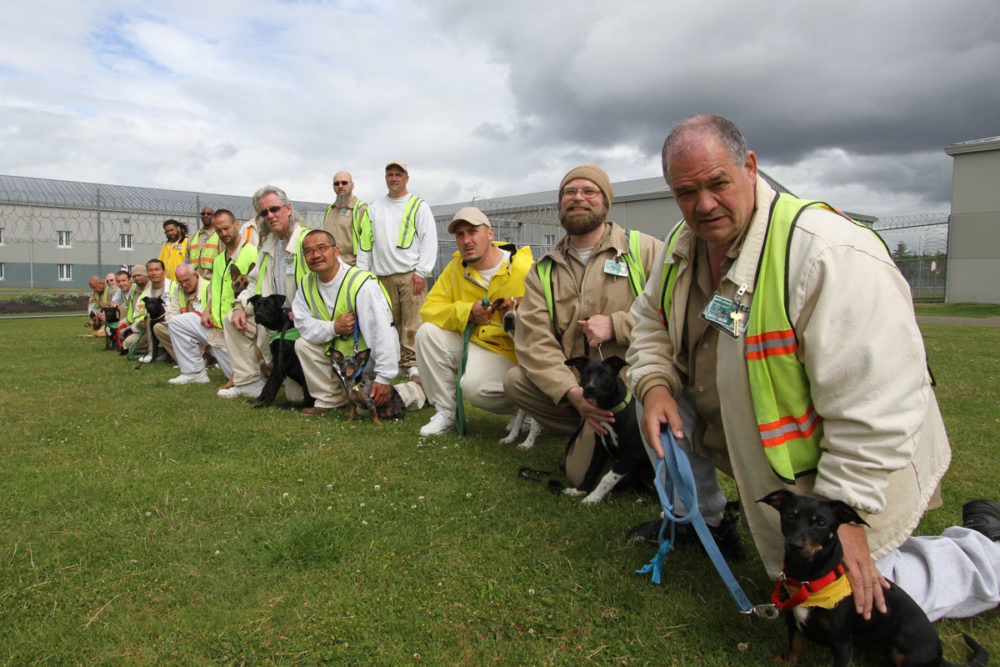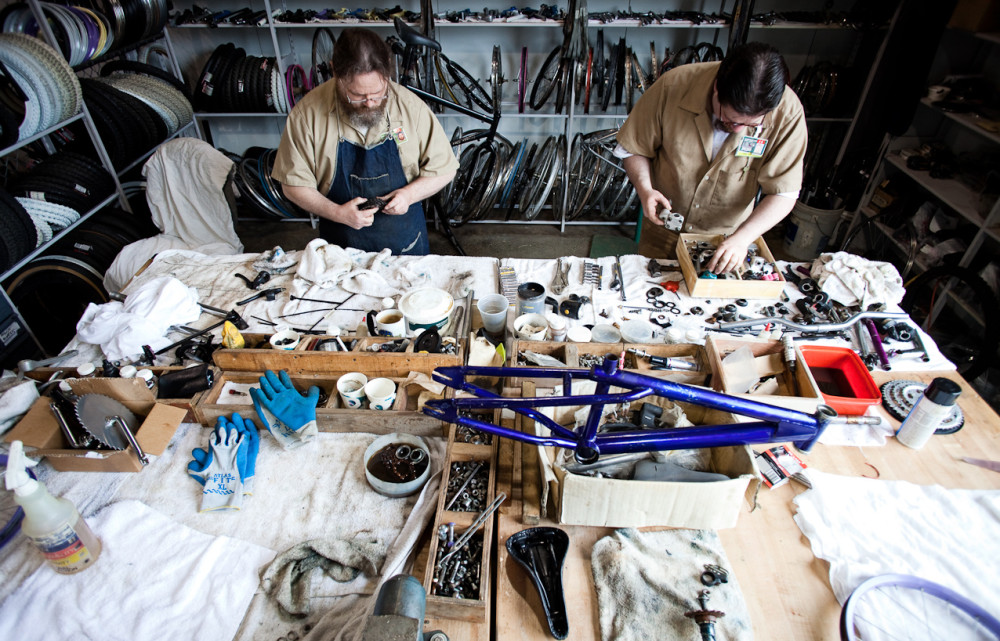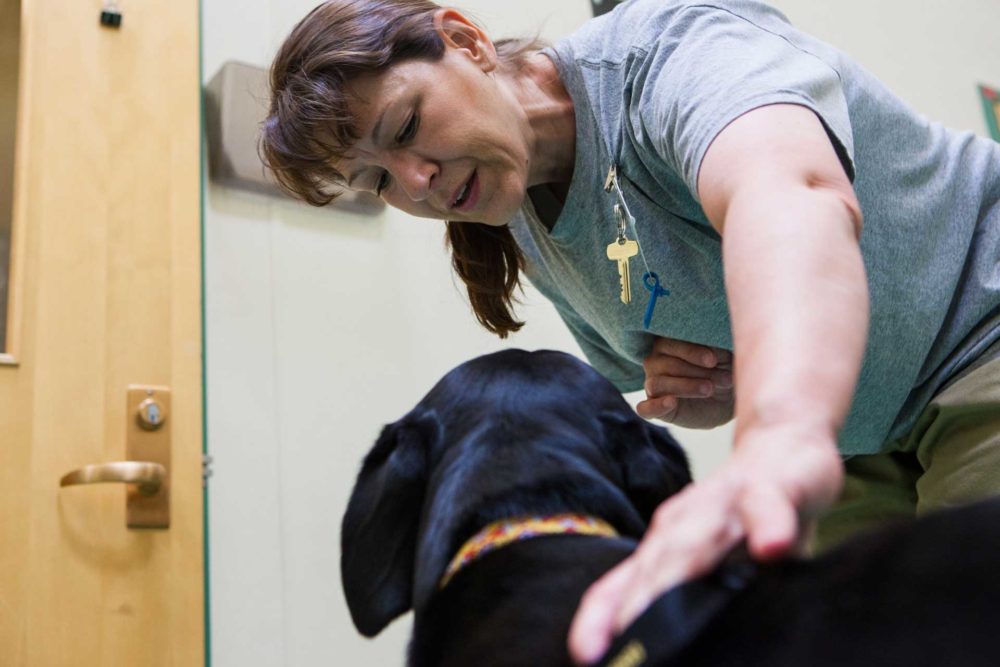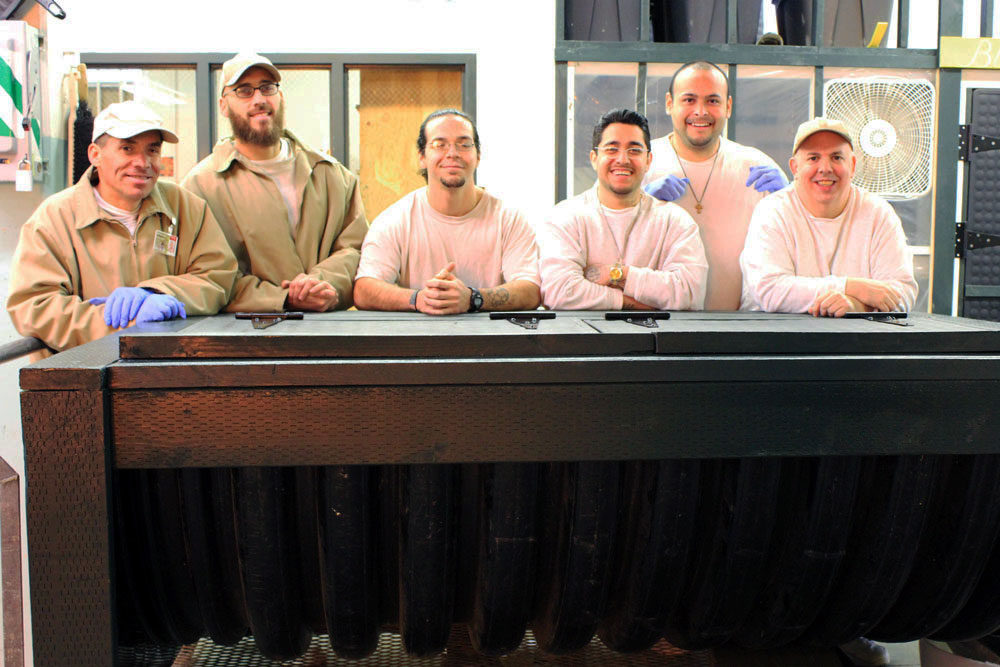Community Contributions
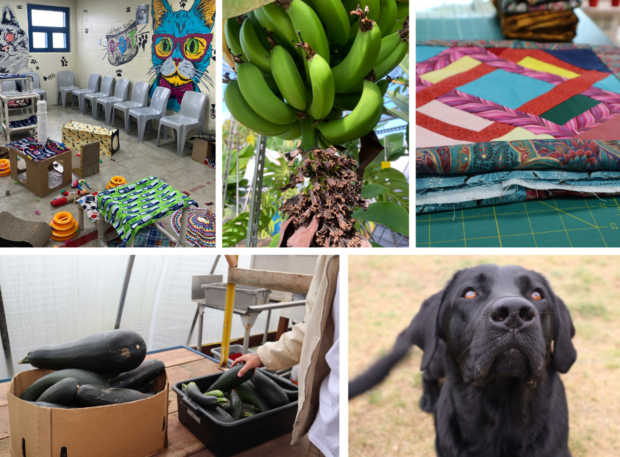
Many programs in Washington prisons provide a variety of services and goods to the local communities. Photos by SPP and DOC staff.
SPP celebrates the many Community Contribution programs in facilities across Washington. Community Contribution programs are administered and supported by hundreds of diverse organizations across the state, and many were established long before they were considered part of SPP — they’ve had their own staff, volunteers, brand identity, and reporting structures. SPP seeks to add to the programs’ identities and to document and promote their achievements and best practices.
Most programs developed as a relationship between a single facility and local community organizations, often non-profits. Typically, the community organizations are already engaged in work that benefits the community; Creating a partnership with a prison means the organization can offer benefits to more people.
For the corrections facility, partnering with community organizations provides incarcerated individuals with more options for meaningful work, and allows them to contribute to the world outside the secure perimeter. For many incarcerated individuals and corrections staff, these programs provide a welcome relief from an otherwise stressful and stark environment. Here we highlight only some of these programs; For full details, see the Community Contributions section of SPP’s annual reports.
Reclaim, Repurpose or Restore, and Donate Programs

This view of an area of WSP’s Sustainable Practices Lab (SPL) gives some sense of the lab’s incredible productivity.
Consistent with the earliest days of SPP programs, WA prisons strive to “throw nothing away,” to transform potential refuse into something of value. In some cases, these programs’ creations directly meet an organization’s need: donating quilts to a homeless shelter, refurbished computers for schools, and growing produce for food banks. In other cases, programs donate handmade or restored creations for organizations’ fundraising events. The productivity and generosity of these programs are best illustrated by statewide numbers. Here’s just a sampling of highlights from 2024:
- AHCC’s “Computers 4 Kids” program refurbished 24,843 computers. Partnering with the Office of the Superintendent of Public Instruction and the Washington Department of Enterprise Services, 18,695 computers went to surplus and 1,932 went to local schools.
- In partnership with local Master Gardeners, Shriners Children’s Hospital, and the Ronald McDonald House, AHCC gardeners grew 5,911 pounds of produce and donated some of it to Spokane’s Women and Children’s Pantry.
- CBCC vegetable gardeners donated 1,400 pounds of produce to the Clallam Bay Food Bank (with 194.5 pounds of that grown hydroponically!).
- CRCC’s gardeners donated 4,000 pounds of produce to local food banks.
- SCCC restored 197 bikes in partnership with the Lions Club.
- WSP gardeners donated 40,000 pounds of produce to the Blue Mountain Action Council food bank and 9,000 pumpkins to elementary schools.
- WSP’s SPL’s quilting program donated 890 quilts in 2024.
Dog and Cat Programs
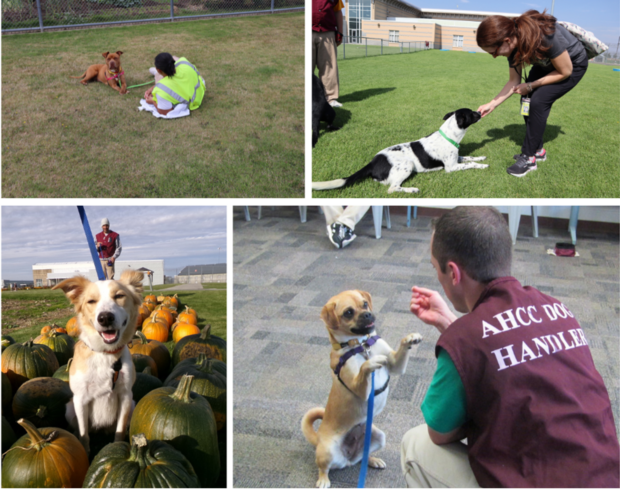
Almost every facility in Washington has a dog training program. Photos from partners, DOC, and SPP staff.
Dog and cat programs are common in prisons across Washington. Nearly all of Washington’s prisons have formed one or more partnerships with community nonprofits to create pet programs. Incarcerated individuals receive support from partner organizations to provide excellent animal care and obedience training, and—in a few cases—service and/or therapy training. We have heard from incarcerated people and corrections staff that pet programs are a benefit to all directly involved, and to the larger prison community as well. Sometimes, participants of these programs say that working with dogs or cats transformed them.
“I’ve had a chance to transform a dog’s trauma into joy through love and discipline. In the end, my efforts liberated not only the dog, but me as well.”
|
Prison |
Program |
Program Partners |
Highlights |
|
AHCC |
Pawsitive dog training |
AHCC restarted their program after a 4-year pause. They have graduated 13 dogs from 2 sessions with more planned for 2025. |
|
|
CBCC |
Dog training & adoption |
New dog program starting in 2025. |
|
|
CBCC |
Cat program |
Cat program continues to thrive. CBCC had 4 cats in 2024. |
|
|
CCCC |
Training dogs for veterans |
2 primary dog handlers, 2 secondary handlers, 1 handler as an alternate in training. 2 dogs most of the year. CCCC is considering partnering with PAWS. |
|
|
CRCC |
Ridge Dogs |
81 dogs graduated from the program. |
|
|
CRCC |
Service dogs for veterans |
2 dogs onsite. |
|
|
MCC – TRU |
Dog training & adoption |
Dogs live 24/7 with pairs of incarcerated individuals who care for and train them. 4 program classes and graduations. 8 dogs in training, 9 dedicated two-person handler teams, and 18 dedicated dog walkers. |
|
|
MCC-SOU |
Cat Program |
Program room was decorated with new supplies for cats to have a nice space to socialize. |
|
|
MCCCW |
Pawsitive Prison Project |
Fostered 30 cats, most of which returned to their owners after fostering. 40 participants in the program. |
|
|
MCCCW |
Pawsitive Prison Project |
194 cats and 42 dogs were adopted. 106 participants in the program. |
|
|
SCCC |
Service dogs for veterans |
10 dogs were trained and 7 were placed with veterans |
|
|
SCCC |
Freedom Tails |
35 dogs went through the program in 2024. |
|
|
WCC |
Training dogs for veterans |
2 dogs went through the program in 2024. |
|
|
WCCW |
Prison Pet Partnership |
Continued education and training for incarcerated people in basic pet care, training, grooming, and boarding. PPP partnered with Feisty Felines cat rescue to house foster kittens. In 2024, over 60 kittens were adopted. |
|
|
WSP |
Dog Training |
2 units started training dogs for the humane society. |
